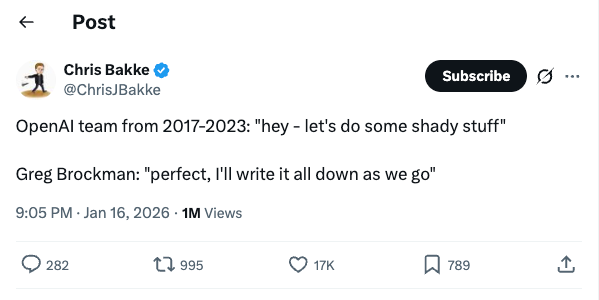Parameter Update: 2025-36
"basilico" edition

Bit of a slow news week this time, but at least the Meta glasses are neat?
Meta Ray-Ban Display
Meta has finally announced a follow-up to their very successful Ray-Ban AI glasses this time featuring a display! Despite the demo fails, I am very excited about these - not because I personally want to particularly stick Facebook-Goggles on my face, but because (1) at just $800, these appear subsidised to some degree and (2) we are finally getting a real SDK for them, so broad app support might be forthcoming. Zuck's Metaverse dream is back from the dead at last!
Here they are! The brand new Meta × Rayban glasses, this time with a heads-up display!!pic.twitter.com/Y6wJu6b4vA
— Tina Debove Nigro ᯅ (@tina__nigro) September 15, 2025
Meta AI's live demo failed for the entire minute 😢 pic.twitter.com/du4roaW0ER
— near (@nearcyan) September 18, 2025
OpenAI
gpt-5-codex
While most people have seem to have gotten around to GPT-5 being a "good model, actually", it has consistently felt just slightly too slow to really keep me in the flow while working with it. At least for coding, that changed this week with GPT-5-codex (really OpenAI? How many more things called Codex are you going to make?). The model continues the "dynamic reasoning" trend by being minimally better at code while being much more efficient (meaning fewer tokens for easier requests and more tokens for complex requests). Feels underrated so far.
this is the most important chart on the new gpt-5-codex model
— swyx @ aiDotEngineer Paris! 🇫🇷 (@swyx) September 15, 2025
We are just beginning to exploit the potential of good routing and variable thinking:
Easy responses are now >15x faster, but for the hard stuff, 5-codex now thinks 102% more than 5.
Same model, same paradigm, but… https://t.co/HopoFlqD01 pic.twitter.com/RBZ1OnE8dR
Parental Controls
I'm still not sure why everyone seems to have collectively lost their minds about child protection online recently (why would I need to show ID to look at Wikipedia, UK?), but it seems that OpenAI is up next. In a new blog post, they announced that ChatGPT will start estimating user age based on platform behaviour, and adapt accordingly. While I can get behind it for things that should really just be settings (e.g., having the model flirt with me - I'd like to just be able to turn that off?), having the model contact authorities when it feels like I am exhibiting dangerous behaviour seems like a recipe for disaster. There needs to be a better way of doing this?
Grok-4-Fast
xAI has unveiled a "Fast" version of their Grok 4 model. This is especially interesting given that they were among the most limited, slow and expensive series of models so far. I haven't gotten around to trying it, but seeing the frontier of cost/intelligence being pushed forward is always good to see - we'll need somewhere to switch to once OpenAI inevitably cuts Codex rate limits.
xAI has released Grok 4 Fast - breaking through our intelligence vs cost frontier by achieving Gemini 2.5 Pro level intelligence at a ~25X cheaper cost
— Artificial Analysis (@ArtificialAnlys) September 19, 2025
Intelligence: @xai shared with us pre-release access to Grok 4 Fast. In reasoning mode, the model scores an impressive 60 on… pic.twitter.com/y9uJNR6c8S
NVIDIA x Intel
This week, Nvidia agreed to buy $5B worth of Intel stock as part of a strategic partnership to "develop AI infrastructure and personal computing products". It's not a secret that Intel has been going through a bit of a rough patch recently, so this seems like a win-win play that finally gets Nvidia some skin in the game in x86 CPU development. Not a good day to be an AMD shareholder though.
ICYMI: We’re excited to collaborate with @nvidia to develop custom CPUs and x86 RTX SoCs for datacenter and client computing.
— Intel (@intel) September 18, 2025
Together, we’re unlocking new opportunities in AI and PC innovation - https://t.co/NrGRWetnjk pic.twitter.com/mwxMHVErXi
Anthropic Economic Index & OpenAI "How people are using ChatGPT"
Both Anthropic and OpenAI gave us some insights into how people are using their products this week - a very interesting insight into the use cases people are actually realizing (vs. the ones that look nice in announcements). Surprising takeaways:
- Germany seems to be doing pretty well on adoption overall (Top-25% for Claude usage)
- There's a shift in usage from "Doing" (40% of usage) to "Asking" (49% of usage) in ChatGPT - I would have expected the opposite to be the case, given the focus on "agentic" behaviour? Anthropic also notes a shift from "Augmenting" to "Automating" in their usage data, so there's a bifurcation happening?
- Just 30% of ChatGPT usage is work-related!
OpenAI literally just leaked what people use ChatGPT for pic.twitter.com/gZj5Me9Fxo
— Yu Lin (@basicprompts) September 15, 2025
New from the Anthropic Economic Index: the first comprehensive analysis of how AI is used in every US state and country we serve.
— Anthropic (@AnthropicAI) September 15, 2025
We've produced a detailed report, and you can explore our data yourself on our new interactive website. pic.twitter.com/YI2qXIQzJO
NeurIPS Admissions
A bit of a smaller item, but last week also marked the announcement of NeurIPS acceptance notifications. As expected when receiving over 25.000 submissions, this wasn't entirely un-dramatic. On the one hand, there were some issues around Russians being blanket-sanctioned, on the other hand it seems that ~400 good papers might have been rejected due to capacity constraints (the conference denies this though).
A few days ago I saw the news that NeurIPS got so many submissions that they had to cap the number of accepted papers, even DB track papers with 4.25 got rejected.
— Chenda Duan (@chendaduan) September 18, 2025
Today something even crazier happened to me: paper #5554, average score 4.75, got rejected. #neurips25 #nips pic.twitter.com/ecVvKUOtTt




